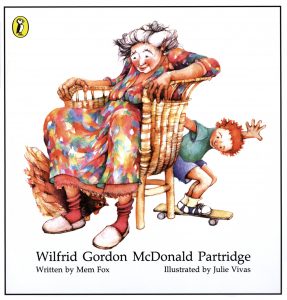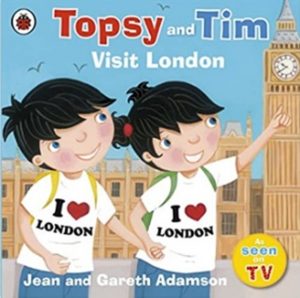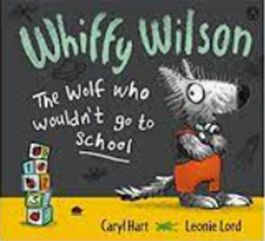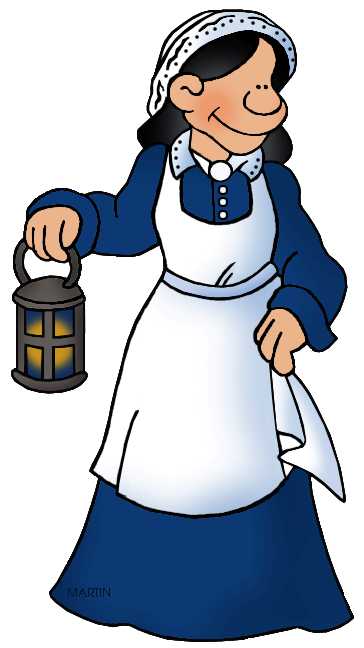| Subject |
Term 1 |
Term 2 |
Term 3 |
Term 4 |
Term 5 |
Term 6 |
| Topic |
 |
 |
 |
| English |
Wilfrid Gordon McDonald Partridge by Mem Fox  |
Topsy and Tim Visit London by Jean and Gareth Adamson |
Whiffy Wilson. The Wolf who wouldn’t go to school. By Carly Hart |
| Spellings |
- the, a, do, to, today, of, are, was, is, his,
- has, I, be, he, me, she, we, no, go, so.
- you, they, by, my, love, have, give, said, for, and, at,
- Days of the week.
- CVC Pseudo words
- Words ending in ‘-y’.
|
- Double consonant ‘ll, ff, ss, ck’
- Words using the trigraph ‘-tch’.
- Adding ‘s’ to words to make plural.
- Adding ‘-ing’ and ‘-ed’ to verbs.
- New consonant spelling ‘wh’.
- Common Exp words ‘says, here, there, where, come, some, that, with, all, my’
|
- Words using the trigraph ‘-tch’.
- Adding ‘-es’ to words of plural nouns.
- Adding ‘-ing’ and ‘-er’ to verbs, adding an extra syllable. E.g. hunting, kinder.
- Words ending in ‘-y’.
- Days of the whole week.
- Common Exp words: ‘were your’. Numbers 0-10
|
- Practise more plurals adding ‘s and es’.
- Adding ‘ed’ to make a past tense verb.
- Compound words where two words are spelt correctly as if independent.
- Common Exp words ‘once, ask, friend, school, put, push, pull, full, house, our’.
- Digraph and Trigraph focus.
|
- Revisit digraphs and trigraph including split digraphs.
- Third person singular of verbs adding syllable e.g. she washes.
- Adding ‘-ed’ to the word, sometimes making an extra syllable e.g. wanted.
- Adding ‘-er’ and ‘-est’
- Learn new consonant ‘ph’.
- Adding the prefix ‘un-‘
|
- Practise for phonics screening check.
- Revise all words ending in ‘-y’.
- Using ‘k’ for the ‘c’ sound.
- Days of the week – practise independent spelling.
- Practise and check full set of Common Exp words.
|
| Punctuation |
- To know that sentences begin with a capital letter.
- Start to use a capital letter to begin a sentence and a full stop to end a sentence in their writing.
- Introduce children to a ‘?’ and a ‘!’ during shared reading.
|
- Learn to use capital letters for names of people and personal pronoun ‘I’.
- Learn to use a question mark and write questions.
- Learn to use an exclamation mark and write sentences that require an exclamation mark.
|
- Children suggest what’s missing from sentences – including all types of punctuation learnt.
- Encourage children to use full stops and capital letters in all of their writing.
- Use ‘?’ and ‘!’ correctly when appropriate.
|
| Grammar |
- Model simple oral and written sentences as examples of clear units of meaning.
- Write simple dictated sentences from memory.
- Know that names of people begin with a capital letter.
- Name people and their jobs in and out of school.
- Model re-reading to check writing makes sense.
|
- Learn the days of the week and the months of the year.
- Wide range of colours.
- Ready rhymes of and poems to hear rhyming words.
- Understand the term ‘describing word’ and use describing words for objects in the school environment.
- Draw children’s attention to the past when talking about texts together.
|
- To know names of places being with a capital letter.
- To learn that personal pronoun ‘I’ and has a capital letter.
- Orally retell a short story using conjunctions.
- Revisit the understanding of the past to show an event has already happened.
|
- Identify action/doing words.
- Develop the skill of reading back over our sentences to check our writing.
- Start to include conjunctions to join two ideas together.
- Introduce the present, progressive and past tense.
- Use of poetry to enjoy rhymes and expand vocabulary.
- Dictate short sentences that include full stops, question and exclamation marks.
|
- Revisit describing words. Using them in the school environment and writing.
- Recognise a sentence which is a question or an exclamation.
- Learn when a sentence gives information or instruction.
- Write simple instructions.
- Learn simple conjunctions words.
- Read and write common irregular past tense
|
- Introduce the use of adverbs which describe how an action is done.
- Compose oral and written sentences that describe an activity.
- Create word banks of past tense verb which children can use as a resource.
- Build vocabulary about the wider world through outings and outdoor walks.
- Where possible arrange a talk by a visitor to expand vocabulary and experience.
|
| Mathematics |
Number
- Place value within 10
- Addition, subtraction within 10
Geometry
|
Number
- Place value within 20
- Addition and subtraction within 20
- Place value within 50
Measurement
- Length and height
- Mass and volume
|
Number
- Multiplication and division
- Fractions
- Place value within 100
Measurement
Geometry
|
| Science |
Everyday Materials
Human Senses |
Seasonal Change |
Plant Parts
Animal Parts |
| Computing |
Online Safety
Sumdog |
Grouping and sorting |
Pictograms |
Lego Builders |
Maze Explorers |
Animated Stories |
| PE |
Invasion games
Health Related Fitness (HRF) |
Sports hall athletics
Invasion games
|
Multi-skills
Gymnastics |
Net and wall games
Invasion games
|
Athletics
Striking and fielding
|
|
RE
|
 Christianity Christianity
Harvest |
 Hinduism Hinduism
Diwali |
 Islam Islam
Milad un Nabi |
 Judaism Judaism
Purim |
 Sikhism Sikhism
Naam Karan |
 Buddhism Buddhism
Esala Perahera
|
| PSHE |
Being me in my world |
Celebrating difference |
Dreams and goals |
Healthy me |
Relationships |
Changing me |
| Art and DT |
- Mix it
- Funny Face and Fabulous Features
- Shade and Shelter (DT)
|
- Taxi! (DT)
- Rain and Sunrays
|
- Street View
- Chop, Slice and Mash (DT)
|
| Music |
Introducing Beat |
Adding Rhythm and Pitch |
Introducing Tempo and Dynamics |
Combining pulse, rhythm and pitch |
Having fun with improvisation |
Explore sound and create a story |







 Christianity
Christianity
 Hinduism
Hinduism
 Islam
Islam
 Judaism
Judaism
 Sikhism
Sikhism
 Buddhism
Buddhism